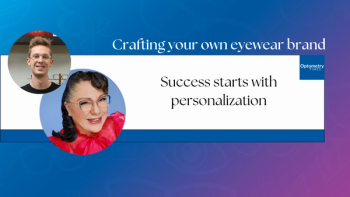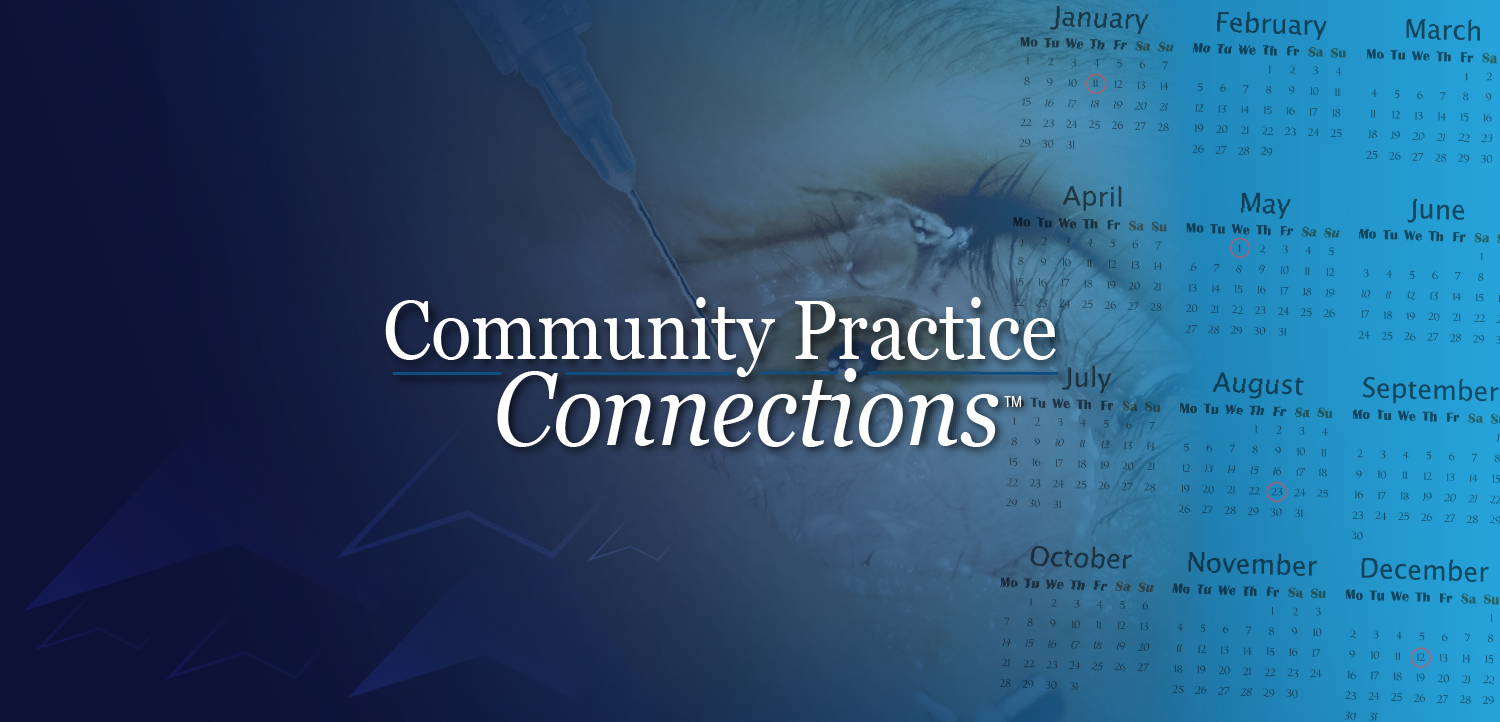
How to be a the tech your doctor can’t live without
Over the years of interviewing, hiring, and training staff, I realized that there are some technicians who are just adequate. They were for the most part reliable, usually made good decisions, and did their job adequately. Nothing more. I also noticed there were other technicians who were superstars.
Over the years of interviewing, hiring, and training staff, I realized that there are some technicians who are just adequate. They were for the most part reliable, usually made good decisions, and did their job adequately. Nothing more. I also noticed there were other technicians who were superstars. These technicians stood above the rest in initiative and skills. They had a natural thirst for knowledge and were highly dependable. They were my go-to techs who I truly knew I could count on. I began to wonder, “What makes the difference?”
Why do you need to be essential?
Why can’t you just come in, do the minimum requirements of your job, and leave? Why should you want to be more effective in the workplace or valuable to your employer? What’s in it for you?
The reality is that it’s more important than ever to remain loyal to your company and work as hard as you can to become indispensable at work. When your manager and co-workers view you as a valuable asset, it’s more likely that you’ll get a raise and a promotion and have a very successful career.
This, of course, is possible only if you enjoy your job in the first place. If you hate your job, then you will never be able to become an asset because there will always be someone else in the world who will do the same work-but do it with a smile. You can’t become complacent. You must stay on your toes.
At the same time, don’t underestimate your value. Ophthalmic techs play a vital role. You are essential, and doctors cannot see patients efficiently without you. You’re valuable, but how do you get to the next level?
I conducted a nationwide research survey of thousands of ophthalmologists, optometrists, and ophthalmic practice administrators. I asked them just two questions: “What do you value in a tech?” and “What would make a tech indispensable to you?” I culled responses into the top 11 responses.
1. Good attitude
Be open and mature. We can’t control most of what happens in life, but we can control how we react to it. Stop wishing for other people’s behavior to change. Instead, look at yourself and find a way to change your attitude to help improve a situation.
Odds are your boss doesn’t like correcting others. He is doing it to help you succeed. Have a mature attitude when feedback is given to you. Use it as a learning opportunity. Have a sense of humor, and don’t take yourself too seriously. Don’t be dismayed when you make mistakes. At worst, mistakes are a learning opportunity. Learn from them and move on. There is no failure-just feedback.
Be a problem solver. Complaining is negative behavior. Focus on solutions, not problems.
2. Experience and skill
The second thing practitioners said they value is experience and skill. We are extensions of the doctor in the clinic, and the more experienced and skilled you are, the more she will trust you to make good decisions. Below are a few components of skills you should know.
Be a great history taker. History taking is one of the most important skills you can develop, and many practitioners mentioned that they value a great history taker. This is a skill you will get better at the longer you do it. I heard a doctor give a presentation, and he said something I never forgot: “Sixty percent of a doctor’s ability to diagnose is based on the history, 20 percent on the exam, and 20 percent on ancillary testing. Think about that: 60 percent is based on history taking. It’s truly a critical skill you must develop.
The book The Complete Guide to Ocular History Taking by Janice Ledford is a wonderful resource to improve your history taking skills.
Be efficient. Your doctor wants to see patients, so keep the flow going. Manage the patient interaction so your conversations are kept to the point of the work-up. If you find yourself caught up in too much social talk, try this to get the interaction back on point: “Mrs. Smith, the doctor is expecting you and probably wondering where you are. Let’s finish up so we can get you in to see her.”
Doctors value fast work-ups. Use tools such as flow charts for ocular motility assessment and pupil gauges with reference charts on them. These will enable you to be more efficient.
Use good judgment. When patients ask you questions such as,
“What do you think is wrong with me?” remember, it’s not our job to interpret tests or to guess at a prognosis or diagnosis; that’s the doctor’s domain. Ours is a supportive role. We can (and should) make clear our doctor’s recommendations when patients have questions, answer questions about what a particular test is for, and pass along test results with our doctor’s approval.
Be careful not to compromise the physician-patient relationship. This can happen inadvertently. Think before you talk, and if you have questions of the doctor when a patient is present, be discreet in asking them. You never want to make it seem to the patient as if you are challenging the doctor when you ask the doctor for added clarity.
Be accurate. Accuracy and knowledge produce effectiveness. Make sure your work is accurate. Take a moment at the end of your work-up to make sure everything is complete, makes sense, and is spelled correctly.
3. Friendliness
Have you ever known someone who was just a disagreeable person? Who wants to work with someone like that? Be personable, cooperative, and friendly. Build and maintain great relationships. This will gain cooperation from others, including your patient.
4. Inquisitiveness
Ask your doctor or senior tech if you don’t understand something or hear or see a word you don’t know. Or better, look it up yourself. Be intellectually curious, research, and ask questions.
5. Loyalty
It's easy to confuse longevity with loyalty. Just because someone has worked for your organization for 20 years does not necessarily mean she is loyal. Maybe she is unhappy but doesn't feel like looking for another job, or maybe she doesn't have marketable skills and can't find another employer to hire her. The point is that just because you’ve worked somewhere a long time doesn’t mean you’re demonstrating loyalty.
How hard would you work to make the practice successful if you were the owner? Take pride in your practice and job. Safeguard its reputation. Promote it within the community. Take an ownership in your job and be emotionally invested.
6. Professionalism
Behaving professionally at work is an important part of any corporate environment. It is also important for your professional and career growth. Most managers say professional behavior and attitudes play an important role in who gets hired and promoted as well as in who gets fired or demoted. Would your boss think you can be serious enough to handle an important task when it comes to that promotion you’ve been hoping for? Would she take you seriously?
Sometimes we may behave unprofessionally at work without even realizing it. This can have consequences. Try observing your own behavior as you interact with your co-workers, boss, and subordinates. Make sure that you are not guilty of any unprofessional habits, and if you are, try adjusting your behavior. Let’s talk about some mistakes many employees make.
Arguing. Disagreeing is OK-arguing is not. If a situation is escalating, ask yourself: Could I be overreacting? Is it just my perception of the situation? Is their behavior provoked by some extreme circumstances? When all else fails, get some distance. This allows you to use your head, not your gut. Disagree respectfully and politely and don’t cross the line. Don’t raise your voice or act on emotions. If you’re an emotional person, take a break and calm down before an important conversation. People often do and say things on the spur of the moment that they later regret. Make it a point to walk away from situations feeling good about how you handled yourself.
Dressing unprofessionally. If you come to work sloppily dressed, your looks will portray an image of a disorganized and messy worker. Dress professionally, especially if your boss is on the conservative side.
Offending. Never make comments or jokes that could be offensive to others. Avoid references to personal characteristics such as nationality, race, gender, appearance, or religious beliefs.
Bringing your baggage to work. We all have personal problems, but leave yours at the door. Make patients your priority. The ability to rise above one’s personal life challenges is one thing that separates professionals from amateurs.
Dishonesty. Don’t lie. Being deceitful or dishonest will tarnish your reputation for life if you get caught. It’s just not worth it.
Showing arrogance. Mentor your coworkers, especially newbies. Recognize others when they do a good job. Don’t feel threatened by others’ success. Don’t act superior toward your coworkers, show your own self-importance, or judge them. Professionals don’t need to prove they’re superior to anyone else.
Not treating your job like it’s a life-long career even if it’s only a stepping stone. Invest in yourself and in your job. If you take it seriously, others will treat you like a professional.
7. Work ethic
Have your grandparents’ work ethic. People respect those with a good work ethic. As you leave work each day always ask yourself, “Did I earn my paycheck today?” or even better, “Did I give my employer more than he expected today?”
Be reliable and punctual. Everyone knows the coworkers who are continually tardy. It’s an easy thing to fix and can tarnish the reputation of an otherwise consummate professional.
Think beyond a paycheck. Yes, we all have bills. If you have a great work ethic, are dependable, and want to make a difference, the money will come. Don’t make money your main objective; make it the cherry on top. Focus on contributing to patient care.
8. Communication
Listening is the most important part of communication. If you don’t really hear someone, how can you properly respond? Repeat what someone says to you to ensure you understood and give the other person an opportunity to correct any misunderstandings. Take age and cultural considerations into account when you’re talking with others. Don’t talk down to people, especially children or those who are mentally challenged.
9.Flexibility
Sometimes, you really have to hustle and be able to think on your feet. Technology changes, government rules and regulations change, and reimbursements fall. All of this requires change to maintain or increase efficiency. Being flexible makes you more valuable. Sometimes you’ve got to really hustle and be able to think on your feet.
10. Initiative
Initiative is a strong indicator of a leader, and motivation is a key. No manager or physician wants to have to stand over someone to tell her what to do. Once you understand your boss’ directives and philosophies, be ready to take action when it’s indicated. Talk to your doctor. Have a technicians’ meeting, and ask your doctor what he wants from you. He’ll be eager to tell you-and you might just be surprised to hear what he says.
11. Teamwork
When you place the needs and priorities of the team above your own needs, you will help your practice’s long-term survival. It's a change from egocentric thinking to focusing on patient, doctor, coworkers, and practice. When you are really in the moment with the doctor and patient, you can anticipate what is necessary to be done and your actions will become seamless. Some call it being psychic but it's really called “paying attention” and taking the initiative to act.
There are high-maintenance employees and low-maintenance employees. High-maintenance ones always have some problem. Low-maintenance ones come in, contribute in a positive manner and do their job-period.
Nothing good comes from gossip or drama. Anything you wouldn’t say in front of the other person, you shouldn’t be saying. Drama has no place in a professional setting. Be busy enough not to have time to be involved with others’ drama. If you want a harmonious workplace, you must play your part and help make it so.
Newsletter
Want more insights like this? Subscribe to Optometry Times and get clinical pearls and practice tips delivered straight to your inbox.
















































.png)


